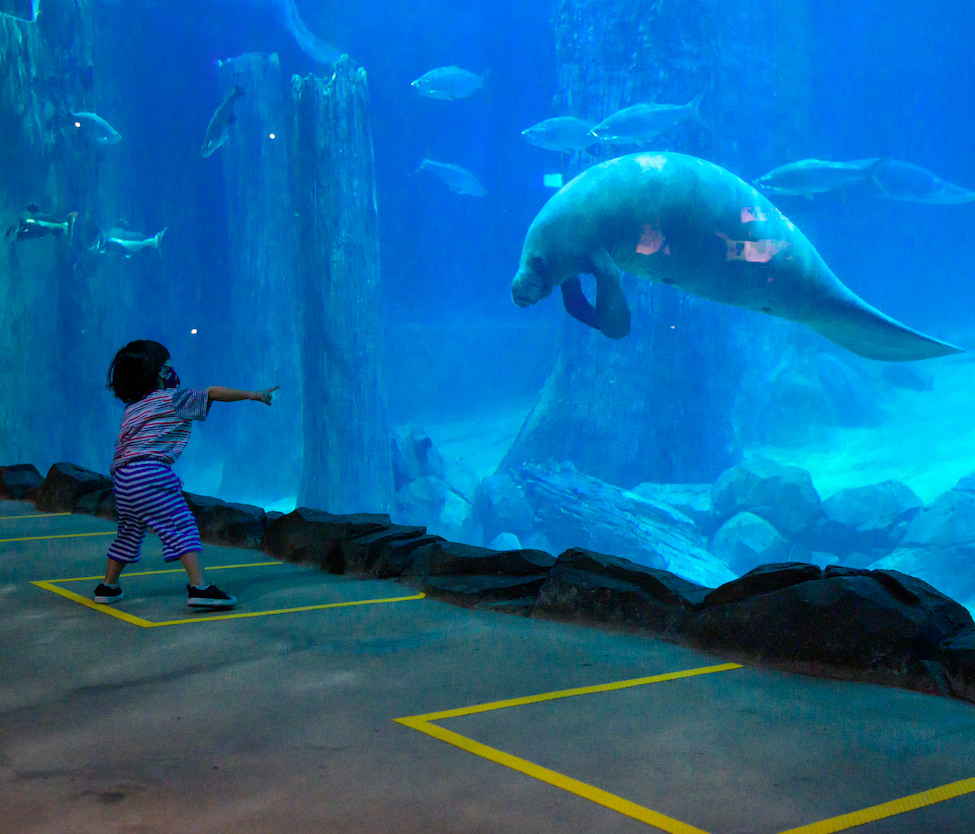For many, the zoo is a place stocked with exotic creatures and habitats, a microcosm of far-off lands and landscapes — a whimsical place, if a little detached from everyday life. Less known is the fact that zoos, including Singapore’s very own Wildlife Reserves, play an important role in protecting animals and their natural habitats, a role that extends far beyond the boundaries of their well-curated compounds.
In spite of the “severe body blow” that the pandemic has dealt to the Wildlife Reserves Singapore, its deputy CEO, Dr Cheng Wen-Haur, says that their mission remains unshaken: to continue protecting the creatures in their care and in the wild — the WRS is involved in close to a hundred local and regional conservation projects — and to educate the public on just why it’s so necessary.
“For the first time in human history, there are more people living in cities than in rural areas,” says Dr Cheng, who’s headed the WRS as both deputy CEO and Chief Life Sciences Officer since 2013. “This means fewer people have any direct contact with nature and wildlife in their daily lives, and this has negative consequences for both wildlife and people.”
As Dr Cheng explains, the loss of wildlife won’t just affect the animals: “I think generally, people are aware that wildlife is under severe threat due to human activities — what they may not fully realise is that this loss of biodiversity will erode our quality of life, and ultimately, impact our own survival.”
Studies have shown that deforestation and extinctions can make pandemics more likely — one article published by the Yale School of the Environment posits that the loss of tropical forests “creates optimal conditions for the spread of mosquito-borne scourges, including malaria and dengue”.
To that end, Dr Cheng and his team commissioned a recently-released study on the conservation habits of Singaporeans to better understand how to tailor their programmes — the results, as he says, bore some “positive surprises”.
Chief on the list of results was the fact that approximately 1 in 2 Singaporeans had never participated in wildlife conservation efforts before — this, despite 64 percent saying that they wanted to. The disconnect? Many simply don’t know where to start.
It’s why the WRS has rolled out a suite of programmes to engage the public in wildlife conservation. Earlier this month, they launched an initiative dubbed ‘My Animal Buddy’, a programme that allows kids (or kids at heart) to pair up with a four-legged buddy from one of WRS’ 4 parks — through live cameras, personal meet-and-greet sessions and talks with keepers, the programme hopes to establish a lasting connection between Singaporeans and nature.
Another stat worth noting from the survey has to do with age: namely, how Singaporeans’ attitudes to conservation differ between age groups. The survey found that Generation Z respondents (those born between 1997 and 2012) were more than twice as inclined to support wildlife conservation compared to respondents from Generation X (those born in 1965 to 1980).
To Dr Cheng, the rationale is simple: young people know that they will bear the brunt of whatever ecological crises that might come in the future.
While he says that he is encouraged that young Singaporeans are “trying to influence the course of their future”, Dr Cheng stresses that they shouldn’t be the only ones taking action.
“It’s the moral responsibility of the current generations who are in charge to do the right thing, to ensure a sustainable future for the generations to come,” he says.
It’s not all doom and gloom. Dr Cheng, for one, remains optimistic that all Singaporeans will come to actively care for the animals they live alongside: just look at the otters that have captured the hearts and minds of the city’s denizens.
“I see real positive indicators of Singaporeans’ attitudes towards wildlife with the return of locally extinct species like the smooth coated otter and oriental pied hornbill,” he says.
“The fact that these two returning species have not only settled down, but are thriving in our highly urbanised city, is a testament to a community that values, and is willing to share, our space with wildlife — and I think that’s worth celebrating.”
Support the WRS’ initiatives by visiting their site here.




